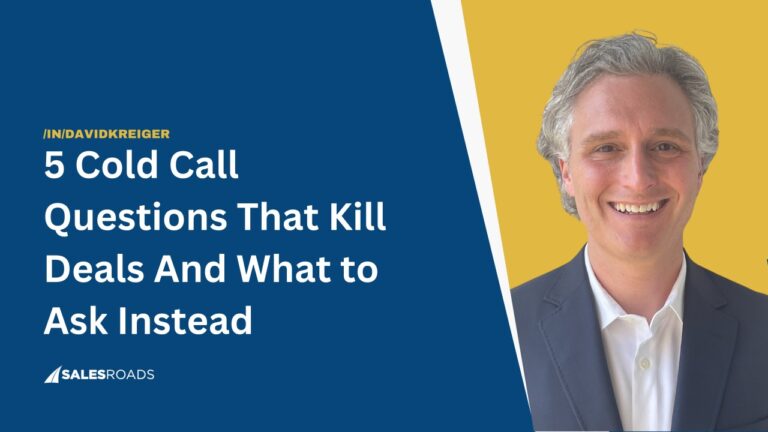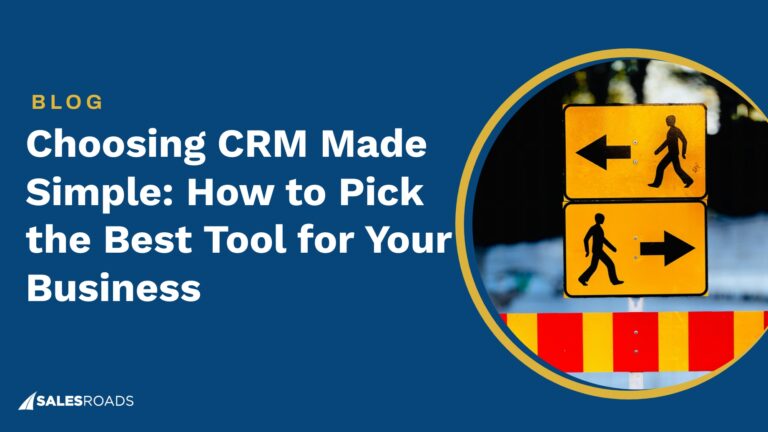57% of executives say they’d rather pick up the phone than deal with any other sales channel. That sounds promising, but just getting them on the line doesn’t guarantee you’re going to have a real conversation with them.
That part you need to earn.
I’ve listened to thousands of cold calls, and most reps torch their chance within minutes. They dive into scripted questions that come off as lazy, self-serving, or straight-up interrogations.
These are questions thrown together without any grasp of buyer psychology. That’s why the difference between a hang-up and a booked meeting usually isn’t the pitch. It’s the way you ask your questions.
So I pulled together a list of questions you should be asking on a cold call, framed in a way that actually works:
Stop Asking: “When do you want to get started?”
-> Ask this instead: “Why now?”
When you ask about timing upfront, you’re handing prospects an easy exit. “We’re not looking to start anything right now” becomes their default response, and your solution gets pushed into some vague future that never comes.
“Why now?” flips the script.
It forces them to articulate their priorities, their urgency, their real drivers. Maybe their current system is breaking down. Maybe they just lost a big client. Maybe leadership is breathing down their neck for better results.
Whatever it is, you need to understand their “why now” before you can position your “what if.”
Stop Asking: “Are you the decision-maker?”
-> Ask this instead: “Can you share how the decision-making process works within your organization?”
Nothing kills rapport faster than questioning someone’s authority right off the bat. Even if they’re not the final decision-maker, they’re still a person with influence, knowledge, and the ability to either champion or kill your deal.
When you ask about their decision-making process, you’re showing genuine interest in how their business works. You’re treating them as an insider, not an obstacle.
And you’ll learn way more about the real dynamics at play. Who has input? Who has veto power? What does the timeline look like?
This approach turns gatekeepers into guides.
Stop Asking: “Would you be interested in our product/service?”
-> Ask this instead: “What challenges are you facing right now that we might be able to help with?”
Binary questions get binary answers. And “no” is always easier than “yes” when you’re interrupting someone’s day.
Instead of forcing them to make a snap judgment about your solution, give them space to talk about their world.
What’s keeping them up at night? What’s not working the way it should? Where are the gaps?
Once you understand their challenges, you can position your solution as a potential remedy. You’re not selling features; you’re solving problems.
Stop Asking: “Have you heard about our company?”
-> Ask this instead: “What’s important to you when considering new partners?”
Fishing for recognition is a weak opening. If they haven’t heard of you, you’ve just highlighted that fact. If they have, it doesn’t automatically create interest.
Instead, focus on their criteria. What matters when they evaluate solutions like yours? Security? Integration? Support? Pricing? Scalability?
Understanding their decision criteria helps you tailor everything that follows. You’re not pitching blindly; you’re addressing what actually matters to them.
Stop Asking: “Do you have a budget for [solution]?”
-> Ask this instead: “How do you determine budgets for initiatives that help alleviate challenges like [problem area]?”
Budget questions feel intrusive and create defensive responses. “We don’t have a budget” becomes an easy way to end the conversation, even when a budget could be found for the right solution.
When you ask about their budgeting process, you’re learning about their business, not prying into their wallet. How do they evaluate ROI? Who controls spending decisions? What does their planning cycle look like?
This approach helps you understand not just whether they have money, but how they think about spending it, which is far more valuable.
Final Thoughts
I believe the best cold calls don’t feel like cold calls. They feel like conversations between professionals who are genuinely interested in understanding each other’s business.
Your questions set that tone from the first 30 seconds.
When you show genuine curiosity about their situation, their challenges, and their decision-making process, prospects stop defending and start sharing.
That’s where real sales conversations begin.
Explore Further: Recommended Resources
I’ve pulled together some solid SalesRoads articles you might find useful if you want to dig deeper:










